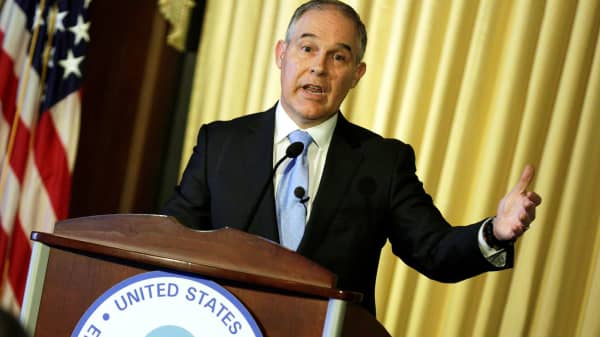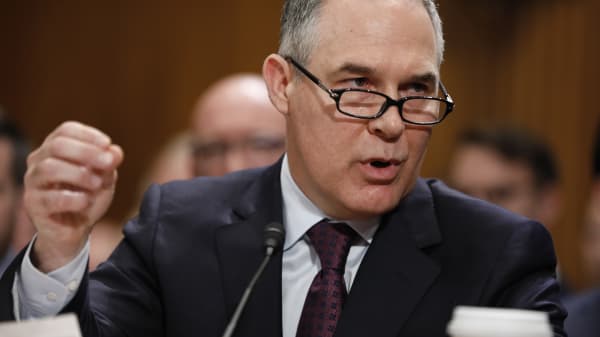Recently, new U.S. Environmental Protection Agency Administrator Scott Pruitt said that he does not agree that carbon dioxide emissions are a primary contributor to global warming.
This is, of course, simply not true. And he should realize that he is hurting the American people and our economy when he tries to inject doubt into proven science.
The reality of climate change should encourage Mr. Pruitt to be even more clear-eyed and pragmatic, and to recognize that taking action to reduce carbon pollution is necessary to put the nation's economy on a strong long-term path.
Businesses thrive when they make smart decisions based on the best available information. The reality is that climate change is happening now and is having wide-ranging ripple effects on businesses – both on their direct operations and global supply chains.
Making evidence-based calculations about the future is what companies call managing risks. Tackling risks creates enormous business opportunities – something we're already seeing as the clean energy economy is creating hundreds of thousands of jobs all across the country. Ignoring risks and long-term trends for short-term benefits is how to drive a company - and the economy - into the ground.
The American business community is strongly united in recognizing the need for climate action. Close to 900 companies and investors have called on President Trump and Congress to support the Paris Climate Agreement and low-carbon policies that will help the U.S. achieve its carbon-reducing commitments. Industry giants like DuPont, eBay, General Mills, Mars Inc., Nike, PG&E and VF Corporation are among those telling the Trump administration that the low-carbon future is coming, and businesses need to plan for it.




